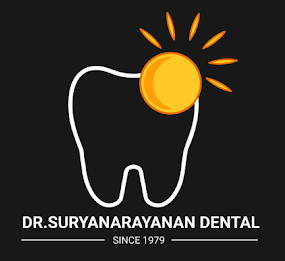Latest Advanced Equipment and Sterilisation
Latest Advanced Equipment and Sterilisation
Orthopantomograph
At Dr.Suryanarayanan's Dental Clinic, we think that it is super important to be thorough when diagnosing and examining a patient.
An OPG is a panoramic view x-ray which shows upper and lower teeth on a single film.
It allows us to detect, view and visually explain to each patient the treatment they may need all together in the first consultation appointment itself.
Intraoral Scanners
Digital intraoral scanners have taken the traditional practice of taking a dental impression of your teeth to a whole new level.
They are touch-free, comfortable, precise and 100% accurate. Also, the 3D model of your teeth that is generated is easily stored and transferred as digital data.
What’s the difference between traditional and digital impressions of your teeth?
The traditional way of taking a dental impression can be uncomfortable and messy.
You have to endure the application and setting of a lot of gooey rubbery PVS material in your mouth. All the while, you may experience unpleasant sensations such as gagging & choking.
Later, the actual process of making your crowns or other restorations can take days or weeks to complete. As a result of this delay, you’ll need to come back for several visits.
On the other hand, digital scanning simplifies the dental impression process and reduces the time taken to just a few short minutes.
You can even watch the 3D model of your teeth being generated on screen with each pass of the wand until a highly accurate 3D model is complete
Vistascan
- This phosphor plate scanner is a highly efficient and time saving device which allows us to quickly digitalize and view dental xray images one after the other.
- It gives images of the highest quality which allows us to accurately diagnose and treat the affected area of the tooth.
- It uses small comfortable and flexible image plates for utmost patient comfort. So, no more additional pain due to bulky scan plates that are commonly used.
Electric Motor
This device allows us to cut tooth structure much faster than the commonly used air driven motors.
It also gives the operator much more control to be even more precise in all the work done.
It also produces far less aerosols than the regular dental handpiece during treatment, which greatly reduces the risk of cross infection.
Piezosurgery Unit
We use this unit for highly advanced surgeries which require micro precision around important structures like nerves and vessels.
The piezosurgery device produces specific ultrasound frequency modulation (22 000–35 000 Hz).
The unit provides extreme precision and safety as well as micrometric cutting.
thus, allowing one to selectively section the mineralized bone structures without damage to any other soft tissue structures.
Dental Operating Microscope
Operating microscope provides us the ultimate level of magnification required in dentistry for the unparalleled precision in work that we do.
It provides magnification upto 30 times and a high-grade illumination
Our microscope is also connected to a live video which is displayed on a monitor so that you can see what the dentist sees.
This results in a better understanding of what the dentist is doing and explaining to you.
Dental Laser
A dental diode laser is a system in which photons are produced by electric current with wavelengths of 810, 940 and 980nm i.e., in the near infrared wavelength region.
We use it frequently for shaping gums, removing lesions in a painless, bloodless manner without the hassle of cuts and stitches.
It is also used in procedures like frenectomy, troughing, disinfection of canals during root canal treatment.
They are of great use in relieving muscular and capsular jaw and joint pain due to various reasons called as low-level laser therapy.
Another important use is in laser teeth whitening.
Densah Burs by Versah
The Densah Bur technology is based on a biomechanical bone preparation technique called osseodensification. This technology is is a method for preparing the jaw bone to receive a dental implant. Traditional methods can be rough on the jaw bone. With this technology, the drill is rotated in a reversed, non-cutting direction. This method allows for the bone tissue bulk to be preserved and compacted making it more dense. Overall, to put it simply, this method can reduce healing times and creates a stronger foundation in which the implant can be placed with maximum stability.
Sterilization
Our staff adheres to the most rigorous and comprehensive sterilization process for each instrument used in our practice.
Also, a complete protocol for sterilization is followed after every patient for enhanced safety of our patients.
The instruments used are all pouched and sealed and sterilized in an advanced autoclave machine called Class B autoclave.
Class B autoclave
These are the most advanced steam sterilizers in the medical field.
The class B autoclave removes all air from the chamber using segmented vacuum cycles. It is the most effective current method for sterilizing all types of instruments.
This process secures that any harmful virus, including coronavirus are destroyed before they are released back to the environment during air removal phase.
You will see that the instruments are sealed and sterilized, totally untouched and will only be unsealed in front of the patient for use.












